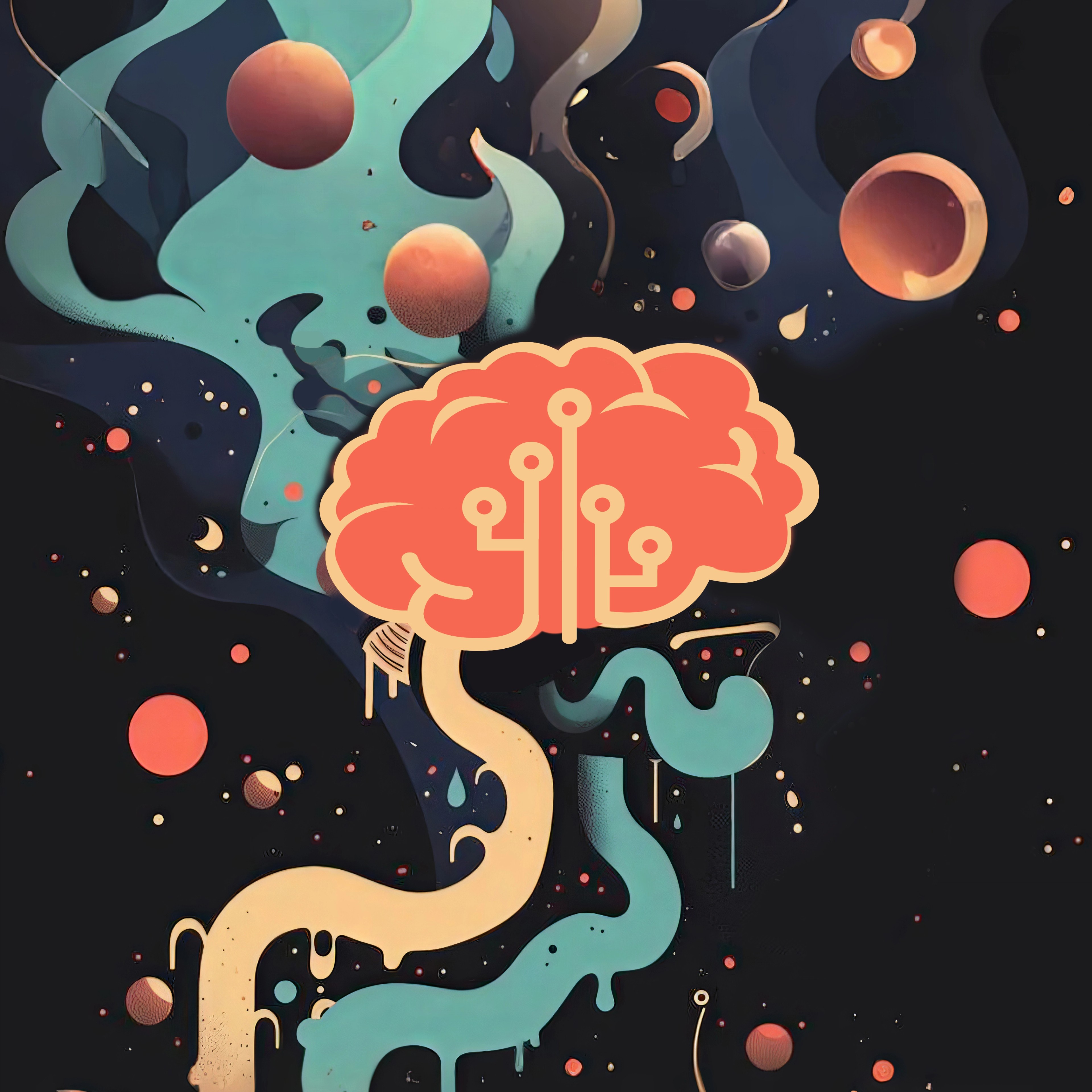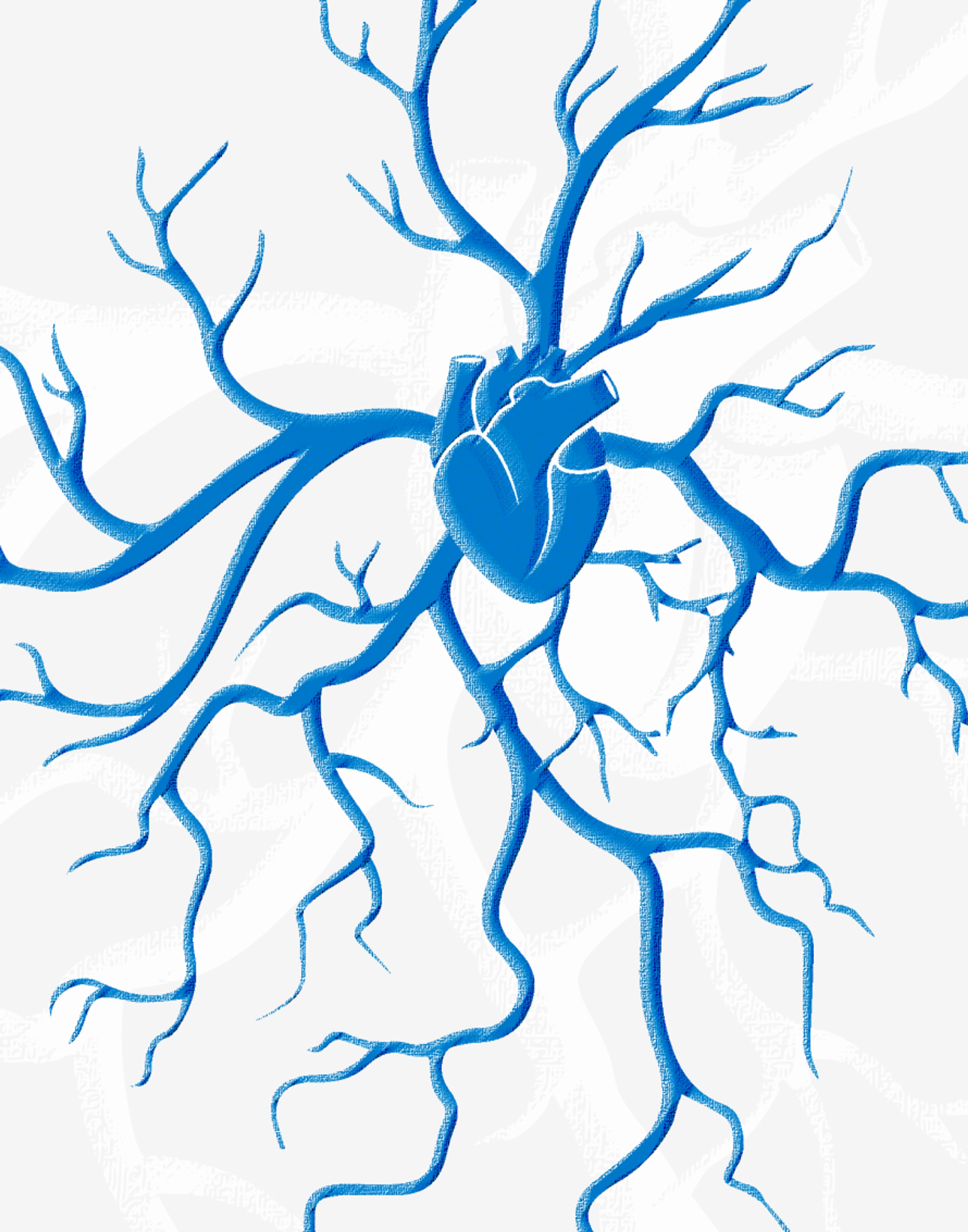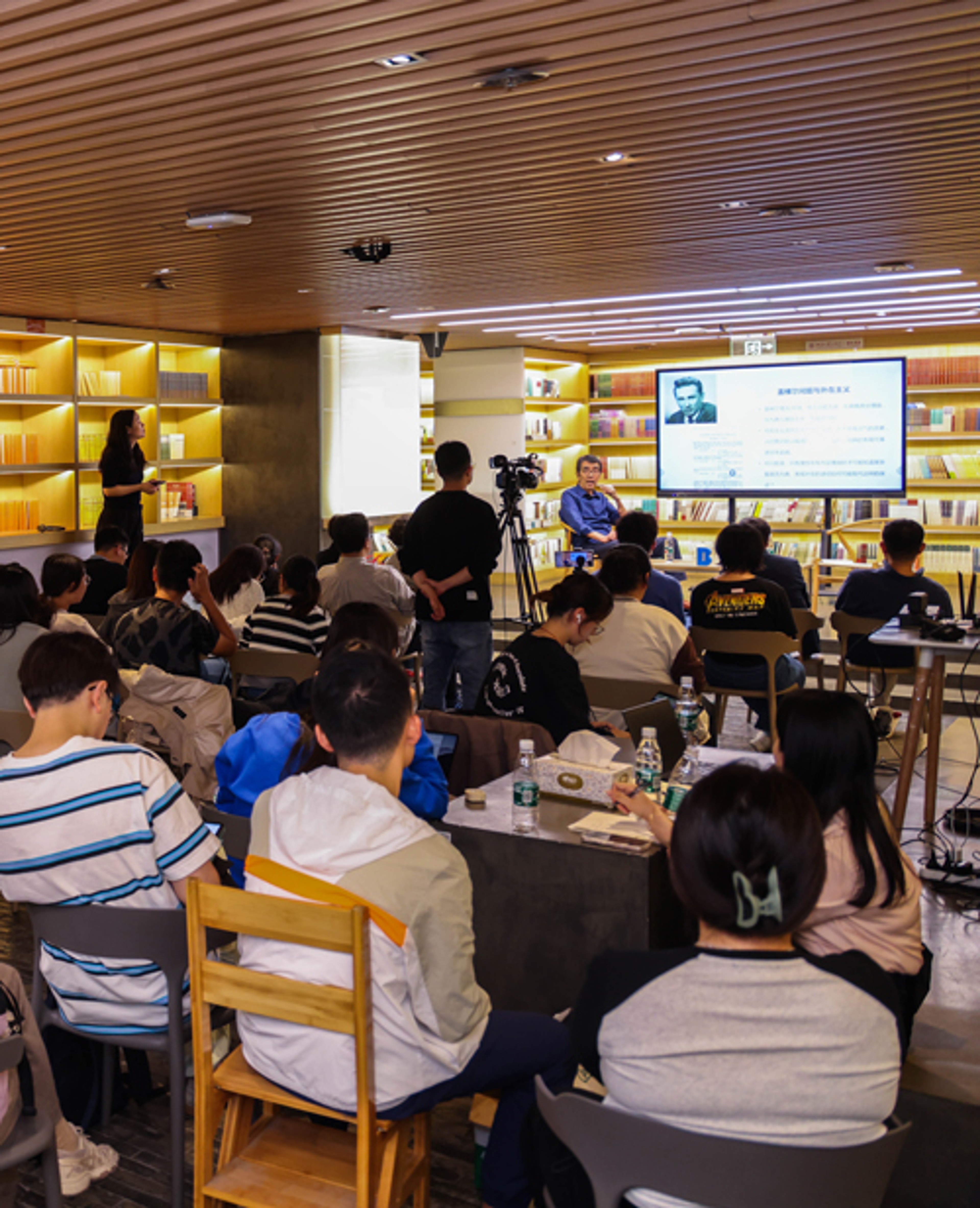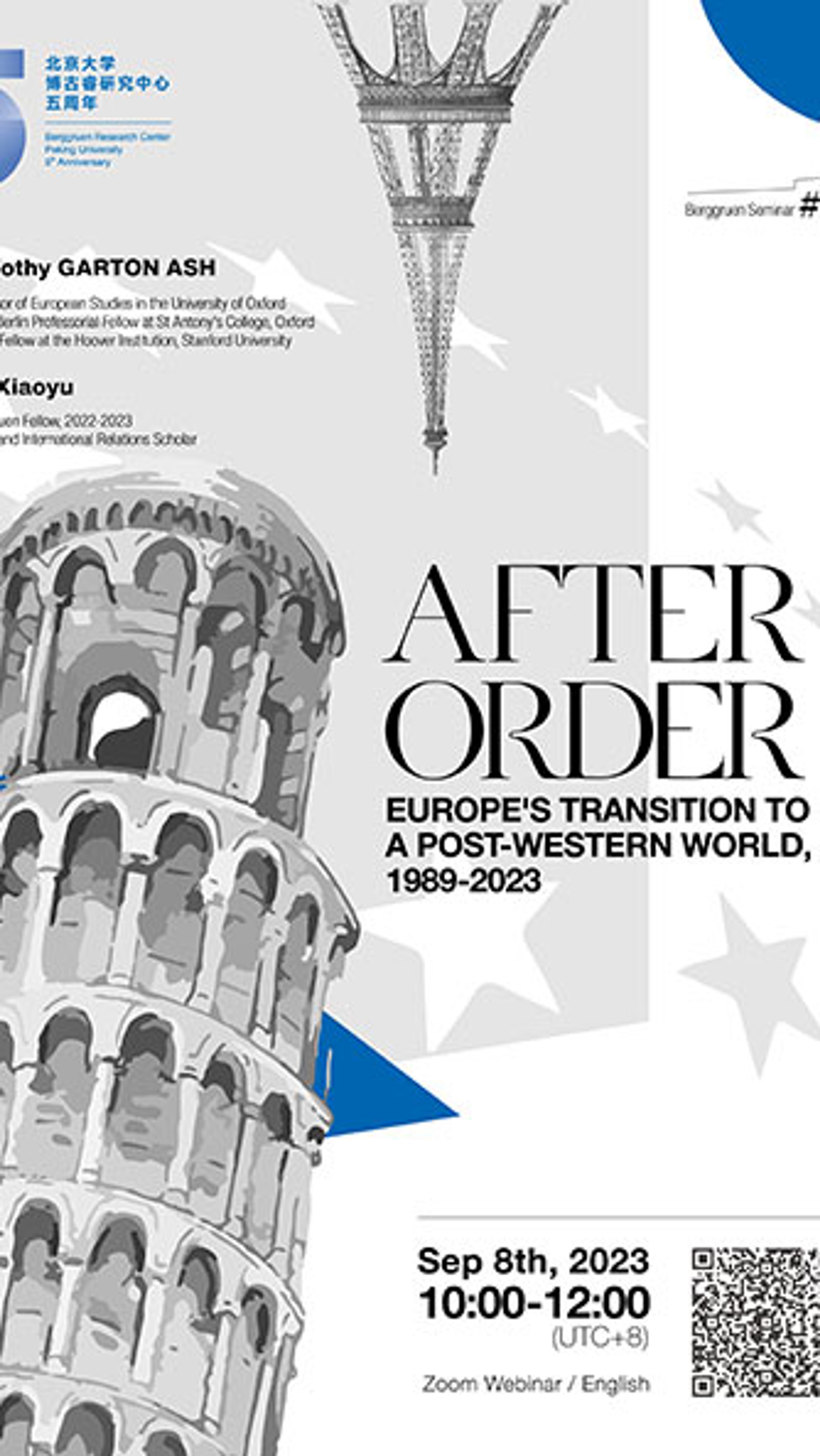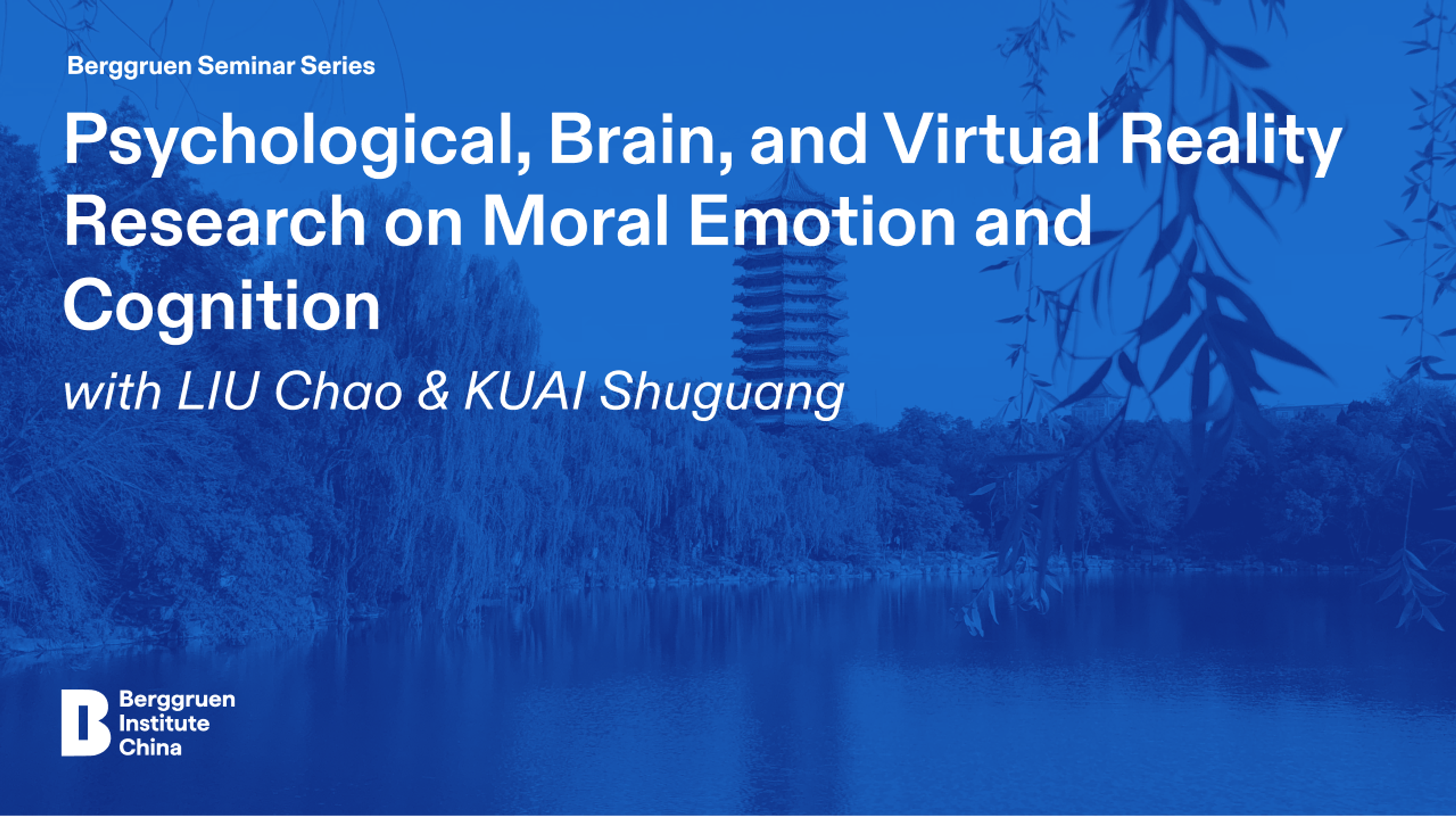Psychological, Brain and Virtual Reality Research on Moral Emotion and Cognition
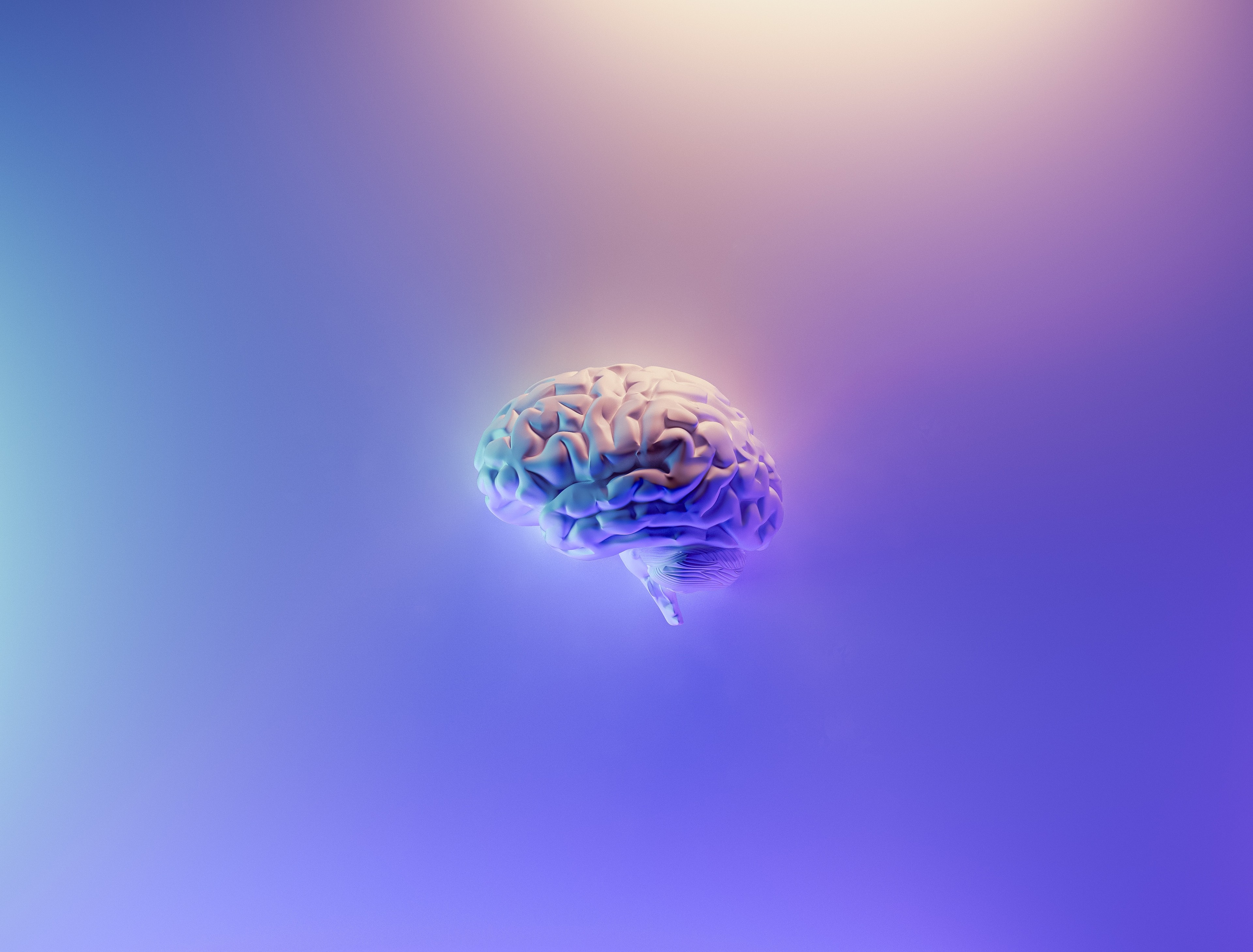
- Date: September 20, 2023
- Location: PKU Bookstore
Language: Chinese
About the event:
Moral issues and related social phenomena have always attracted public attention. This issue has long been a hot cross-disciplinary research area in philosophy, sociology, psychology, and other disciplines. However, we currently do not have a good answer to the key scientific question “How do people process morality?” We combined different research methods such as behavior, brain imaging, and virtual reality technology to conduct a series of studies on the psychological and brain mechanisms of moral emotions and cognition from the perspectives of processing differences and impact intervention methods of moral emotions, as well as gender differences in courageous actions. We hope that an in-depth understanding of moral emotions and cognition will help us better understand interpersonal interactions and social moral relationships.
- What are the corresponding neural mechanisms of moral behaviors such as interpersonal deception and cooperation?
- How are moral emotions such as guilt, shame, and gratitude represented in the brain?
- How to use virtual reality technology to study human social and ethical behavior?
Speaker:
LIU Chao
Professor at the Faculty of Psychology, State Key Laboratory of Cognitive Neuroscience and Learning & IDG / McGovern Institute for Brain Research, Beijing Normal University
2022-2023 Berggruen Fellow
Professor Liu’s research is in emotion and social cognition in neuroscience. He focuses on the regulatory role and brain mechanisms of emotions in social cognition, especially moral cognition, as well as its applications in fields such as education, management, and public security. He has published more than 40 corresponding author papers in well-known international journals such as Cerebral Cortex, Neuroimage, and Social Cognitive & Affective Neuroscience. He was the PI of two major National Social Science Projects: “Interdisciplinary Research on Psychology, Brain and Artificial Intelligence of Chinese People’s Moral Cognition and Emotional Characteristics” and “Characteristics of Chinese People’s Social Cognition: Integrated Research on Psychological and Brain Sciences”.
Moderator:
KUAI Shuguang
Professor at the School of Psychology and Cognitive Science, East China Normal University, Vice Director of the Engineering Psychology Professional Committee, Chinese Psychological Society
Professor Kuai’s research utilizes virtual reality, neuroimaging, and computational models to explore human social interactions and human-computer interactions, with a particular focus on human behavior in virtual environments. He has published numerous papers as the first or corresponding author in internationally renowned scientific journals, including Nature Neuroscience, Nature Human Behavior, and Nature Machine Intelligence. Professor Kuai has served as the Principal Investigator (PI) for multiple grants awarded by the National Natural Science Foundation of China, including the National Science Fund for Excellent Young Scholars.
Event Summary
Berggruen Seminar Series 23 “Psychological, Brain and Virtual Reality Research on Moral Emotion and Cognition” was held at the Peking University Bookstore on September 20, 2023. The event featured LIU Chao, a 2022-2023 Berggruen Fellow, Professor at the State Key Laboratory of Cognitive Neuroscience and Learning & IDG / McGovern Institute for Brain Research of Beijing Normal University. The session was moderated by KUAI Shuguang, Professor of Psychology and Cognitive Science at East China Normal University. The two experts began by discussing how people process moral concepts. They integrated various research techniques, including behavioral studies, brain imaging, and virtual reality, to illustrate how psychological and neural mechanisms of moral emotions and cognition can be studied from perspectives such as differences in processing and the impact of intervention methods. They also provided examples of using virtual reality technology to construct specific moral scenarios, demonstrating how virtual reality can aid in engineering development and applications in fields like artificial intelligence.
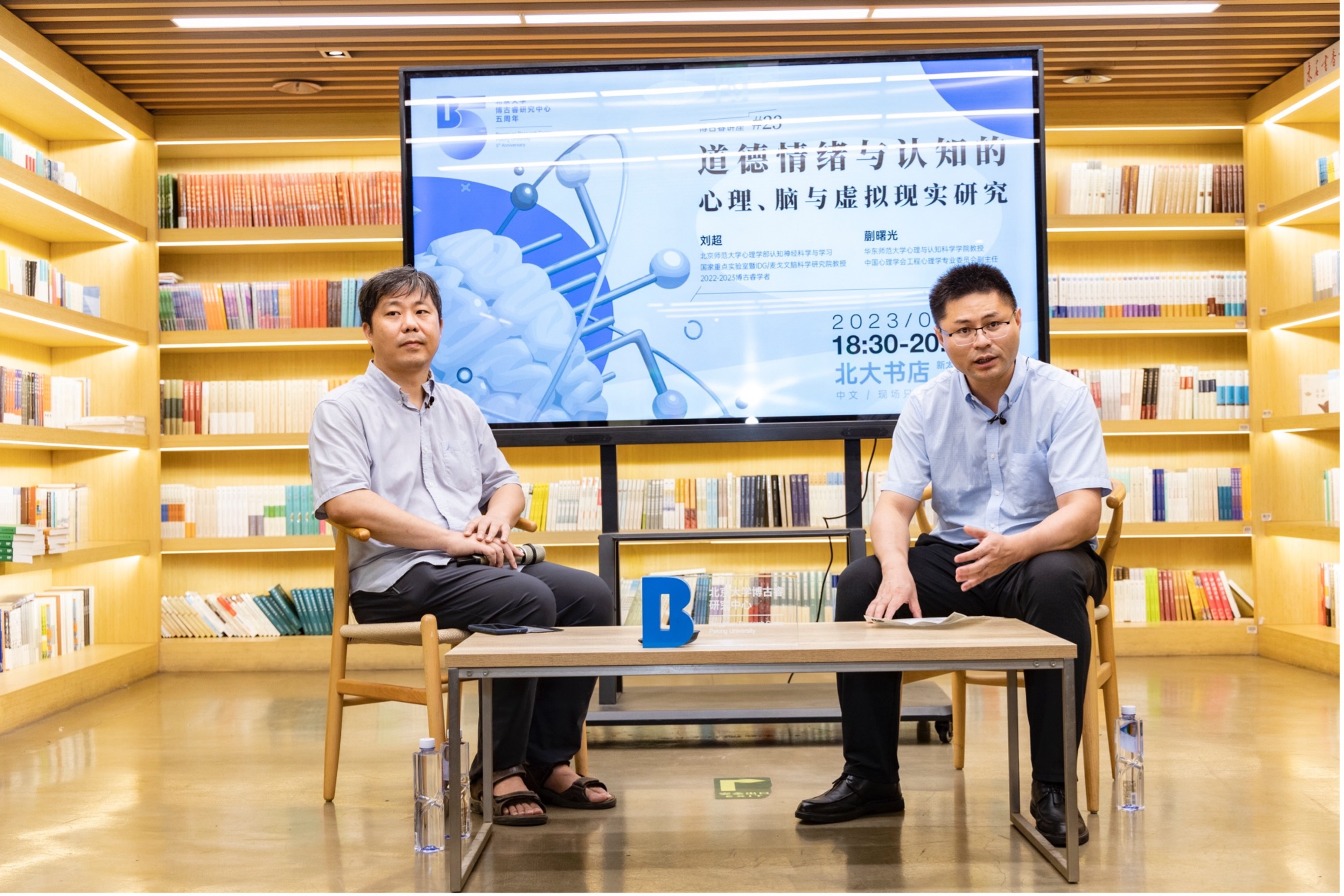
1. Moral Cognition and Emotion
In recent years, under the policy initiative “cultivating good moral character” (立德树人), the study of morality has gained both scientific and political significance. It is not only an important issue in the fields of psychology and cognitive science, but also crucial for the formulation of educational concepts and policies. The core question in morality research is how people understand morality and how they perceive and process moral concepts. Answering this question will hopefully provide insights into the way we view morality and conduct moral education. On its 125th anniversary, Science magazine proposed 125 frontier scientific questions that humanity has yet to solve. One of these questions is, “Is morality hard-wired into the brain?” Research on human moral cognition has long captured the attention of scientists, and the study of moral psychology, from an early stage, has been integrated with brain science.
One major reason for integrating moral research with brain studies is the application of brain imaging technology. This technology provides us with direct evidence of people’s mental activity when they face moral dilemmas (such as the trolley problem). It may even shed light on previously overlooked moral factors. A representative study in this regard is Joshua Greene’s 2001 paper published in Science titled “An fMRI Investigation of Emotional Engagement in Moral Judgment.” Greene tested participants’ brain activities when they faced two versions of the trolley problem, namely the trolley problem and the footbridge dilemma. He found that in the footbridge dilemma brain regions responsible for reasoning and emotional processing were simultaneously active. This dual activation of moral emotions in dilemmas had not been addressed in previous philosophical discussions on the topic. Based on these findings, Greene proposed the dual-processing theory, which posits that when people process moral dilemmas, they simultaneously engage in both rational reasoning and moral emotions.
In the field of moral cognition, moral psycologists currently identify six types of moral cognition: fairness and cheating, care and harm, sanctity and degradation, liberty and oppression, loyalty and betrayal, and authority and subversion. Within each category, individuals may also employ diverse moral strategies. Taking fairness and cheating as an example, when faced with conflicts between self-interest and fairness for others, people often employ different psychological strategies, such as acting as a true gentleman, a hypocrite, or an actual scoundrel. The Dictator Game and the Ultimatum Game in economics provide convenient and effective methods for researching people’s moral cognition in moral psychology. These games involve participants allocating money. In the Dictator Game, the participant has complete control over how to distribute the money between themselves and another person. In the Ultimatum Game, a variation of the Dictator Game, after the allocation is made, the responder may accept or reject it; if the responder rejects it, both players receive nothing. To study the role of cheating in moral cognition, an additional step can be introduced: asking the proposer to inform the responder of the initial amount of money available for distribution. This allows the proposer the opportunity to deceive the responder and gain additional benefits.
Based on this research approach, Liu Chao’s team has made several intriguing discoveries. Firstly, in moral behavior tests involving around forty to fifty rounds, approximately one-quarter of proposers never cheat the responders throughout all rounds, and about one-sixth of proposers choose to cheat the responders in every round. The majority of proposers, however, employ mixed moral strategies. Secondly, individuals who employ mixed moral strategies exhibit significant differences in brain activity. For example, in face-to-face scenarios involving cheating behavior, it was found that compared to a control group where participants do not see each other and communicate allocations through typing, face-to-face cheating had a higher success rate (behaviorally). Additionally, proposers in face-to-face interactions anticipate a higher success rate for their cheating (cognitively). Finally, with brain imaging technology, the researchers observed the prefrontal cortex shows high levels of activity during cheating behavior; the larger the amount of money involved in cheating, the greater the intensity of this activity.
In the field of moral emotions, moral psychologists currently identify six main types of moral emotions: guilt, shame, empathy, admiration, pride, and gratitude. Among them, guilt and shame are considered the most significant ones. Both are predicated on the development of self-awareness (which typically emerges in children around the age of four or five) and arise when individuals recognize that they have violated social or moral norms. Guilt is associated with attribution of the violation to one’s behavior and involves feelings of empathy towards others, often accompanied by a desire to make amends. In contrast, shame is linked to internal or self-attribution and involves concern about how others view oneself, often accompanied by a desire to escape or hide. In addition, gratitude has long been a focus among psychologists and philosophers, with some even suggesting that gratitude is the source of virtue.
To study these moral emotions, Liu Chao’s team also employed the research paradigm of moral games, leading to several intriguing findings. To study guilt and shame, the team designed a cooperative game involving counting dots. In the task, participants were required to count the number of dots on a screen and suggest their count to a partner. The partner then decided whether to accept the suggested number. The participants felt guilt when the suggestion was wrong and the partner accepted it; while they felt shame when the suggestion was wrong and the partner rejected it. In this way, researchers can use brain activity when participants realize they have given incorrect suggestions as a sample for studying guilt and shame.
Similarly, to study gratitude, Liu Chao’s team designed a card-draw shock game. Participants randomly drew one of two cards: a blank card or a shock card. Drawing the shock card meant that both the participants and their partners would receive a shock. In the control group, the participants were informed that their partners would be forced to share half of the shock. In the experimental group, the participants were informed that their partners had voluntarily agreed to share half of the shock. This setup created controlled conditions for studying gratitude in the experiment. The shock game thus can be combined with the aforementioned dictator game. After the shock game, the participants were told that their partners had chosen to deceive others in the previous dictator game. The participants were then given the opportunity to pay to punish the partner at a 1-to-3 ratio. It was found that participants who learned that their partners voluntarily shared the shock in the shock game (i.e., those who felt grateful towards their partners) were less likely to impose punishment during the punishment phase, and the level of activity in the relevant brain regions was lower. This result reveals that gratitude can also have negative consequences, because it may lead individuals showing leniency towards those who helped them, even if it means overlooking behavior that is otherwise deemed immoral.
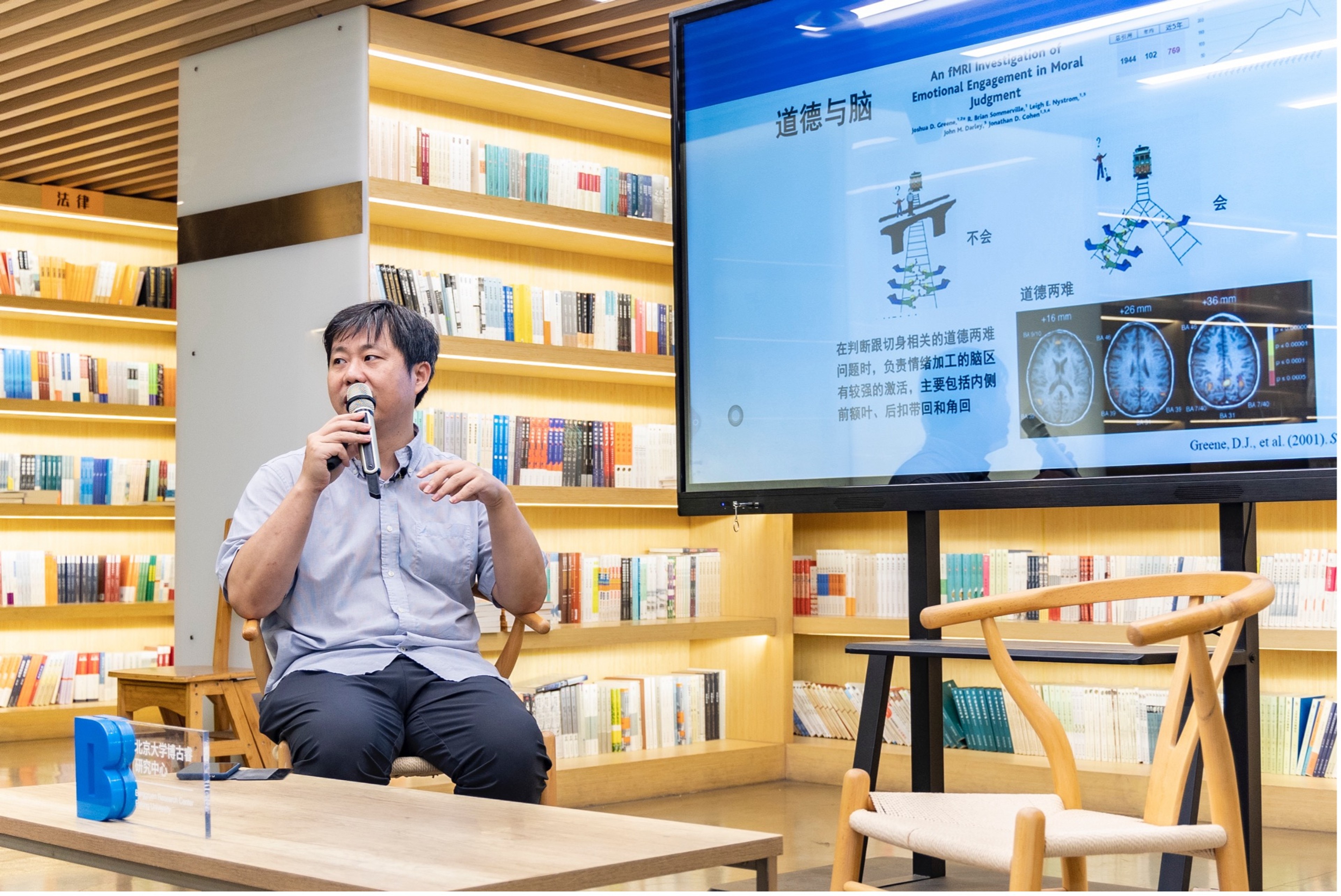
2. Virtuous Behavior and Virtual Reality
In addition, virtual reality technology holds significant methodological value in studying virtuous behavior. For example, when testing virtuous behaviors such as brave actions for justice, virtual reality technology helps build a safe environment for experimentation without exposing participants to danger. Liu Chao’s team used VR scenarios to study the impact of gender differences on behavior demonstrating moral courage. Participants were instructed to use a pole in the VR game to pick up trash for environmental protection. Researchers then introduced a sudden appearance of an aggressor to test whether the participant would intervene and use the pole to stop the aggressor, demonstating moral courage. The team set up three testing environments: one where a police officer chases the aggressor while shouting “Stop the attacker”; a second where the police officer chases silently without making any noise; and a third with no police officer present. These conditions were further combined with additional variables to simulate dangerous situations, including a female bystander screaming, the aggressor telling the participant to “Get lost,” and the scenario taking place at night. It is found that in scenarios where the police did not appear or where the police chased silently, women were less likely to intervene and, even if they did, took longer to respond. In contrast, under increasingly dangerous conditions, men were more likely to act bravely for justice, whereas women’s responses did not vary significantly across the three conditions. The study further looked into the psychological factors related to this phenomenon and found that virtuous behavior was positively correlated with individuals’ pro-social tendencies and women’s empathetic tendencies, negatively correlated with men’s empathy tendencies, and showed no significant correlation with individuals’ risk-taking tendencies. These findings suggest that the introduction of research technologies such as virtual reality makes more detailed insights possible for discussions about virtuous behavior.
The introduction of virtual reality technology is a major advance in psychological research in recent years, as part of a broader revolution in input techniques (i.e. evolving from non-situational inputs like questionnaires to VR game scenarios) and recording techniques (such as shifting from self-reports by subjects to using technologies like near-infrared brain imaging). Virtual reality was initially a tool used in Hollywood film production and later found applications in scenario simulation training for military and defense purposes. After 2012, as the prices of related hardware gradually decreased, it entered the realm of consumer products. In addition to the hardware, the software of virtual reality technology originated in the gaming industry. Benefiting from the powerful graphics capabilities of game engines, virtual reality technology can be used to construct simulated scenarios and characters with a high degree of customization. This greatly facilitates the manipulation of variables in social science and psychology research, making it possible to control social variables, a research premise that was difficult to achieve in the past, and allowing social science research to be conducted with precicion like that of the natural sciences. For example, by controlling the expressions, demeanor, and body movements of virtual characters, researchers can consistently create and control variables like the “degree of perceived welcomingness,” or study the impact of spatial crowding on moral tendencies, among other factors.
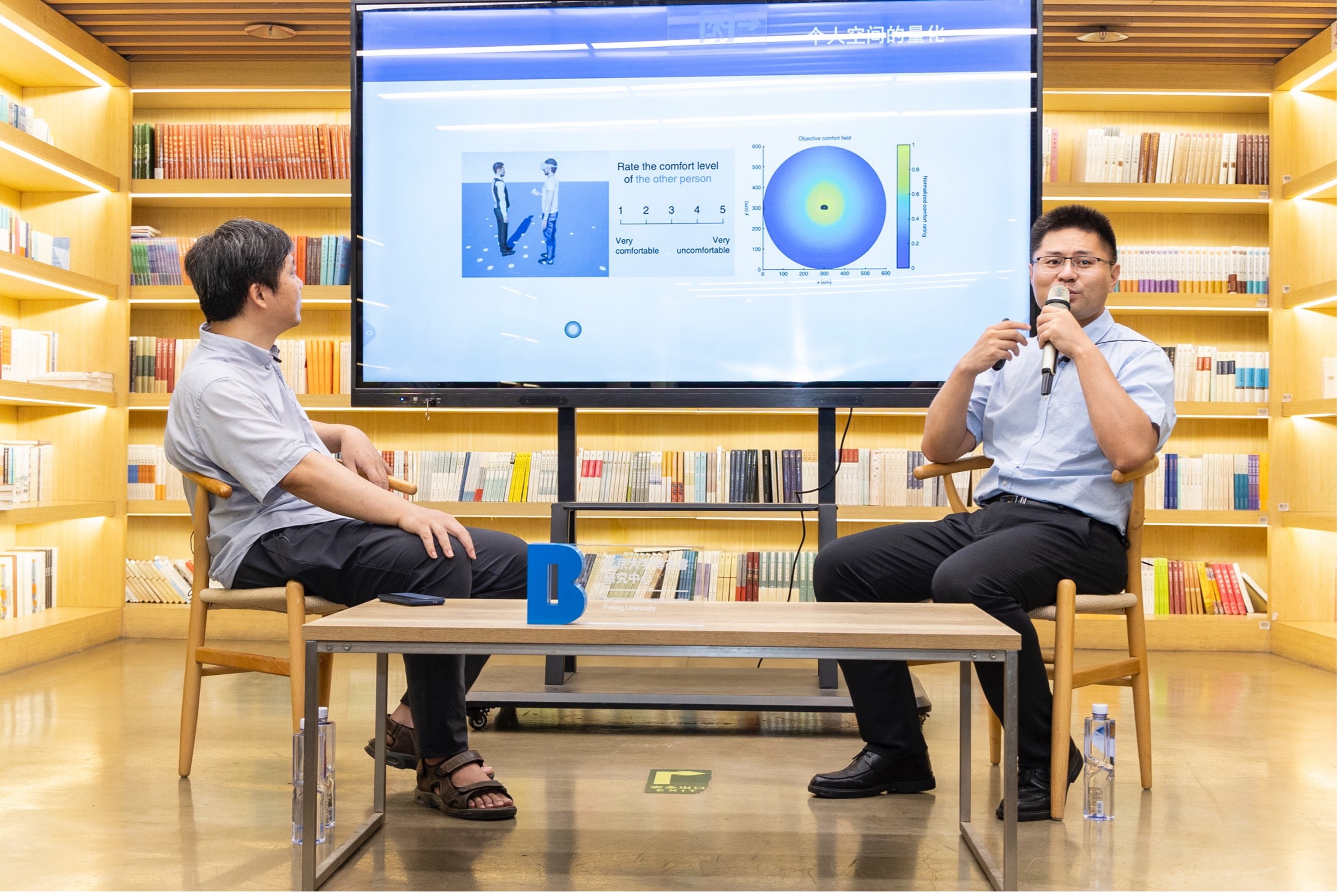
Take the concept of “personal space” from spatial psychology as an example. This concept aligns with the intuitive concept in social life. In daily interactions, if one person gets too close to another, it can make the latter feel that their personal space is being invaded. But how large is personal space, exactly? At what proximity and to what extent does an "intrusion" cause people to feel that their personal space has been violated? In the past, these questions could only be addressed through qualitative sociological observations, which were not very precise. With the help of virtual reality technology, researchers can now quantitatively control spatial conditions, precisely measure the extent of “personal space,” and examine interactions between individuals and their personal space. The technology even allows for predictions about how people will walk in response to personal space in real-world scenarios. Kuai Shuguang’s team, based on quantitative research on “personal space,” has developed models of people’s walking trajectories and preferences in real-world situations.
This achievement demonstrates that the introduction of virtual reality technology signifies a methodological revolution for psychology and, more broadly, for social science research. It goes beyond merely providing an alternative means of scenario construction or reducing research costs. In Kuai Shuguang’s vision, virtual reality technology signifies that social science research can also adopt a precise research paradigm and application framework involving theory, models, and algorithms. Abstract social concepts such as fairness and morality could potentionally be quantitatively measured with the help of virtual reality technology. This can lead to the development of quantitative computational models and even engineering algorithms, which will, in turn, contribute to the creation of better robots, new technologies, and more. This advancement would expand the applications and practical value of social science research.
---
Drafted by LIANG Jiaming
Proofread by Chianna Cohen
Liang and Cohen are Berggruen Interns at Berggruen Institute China.


